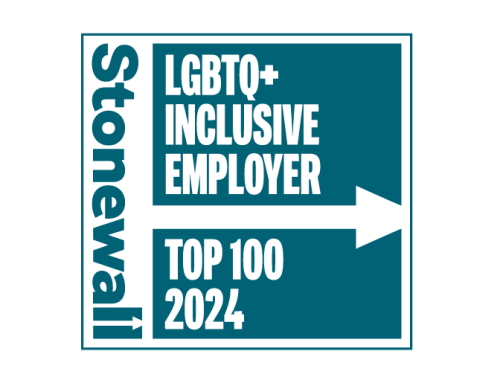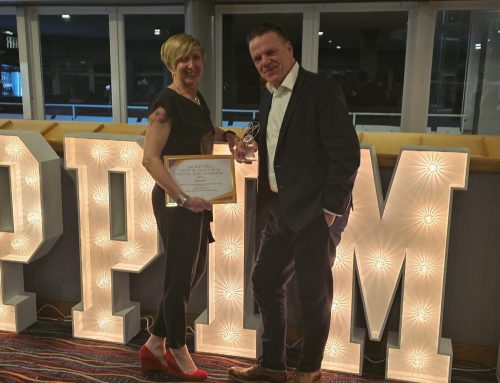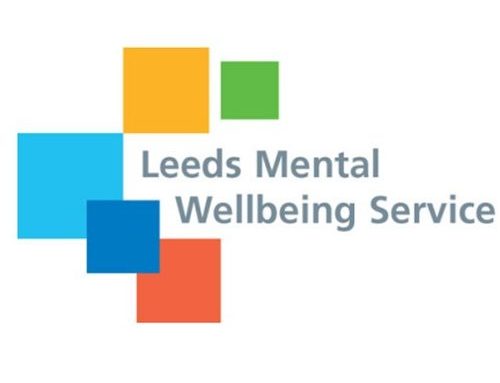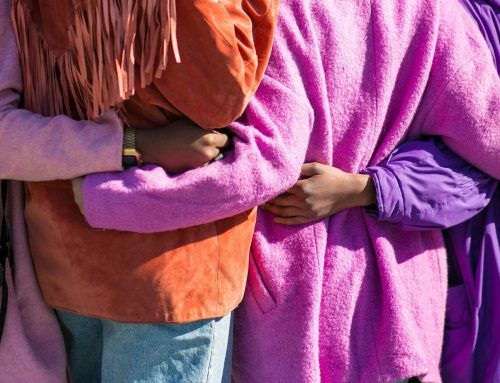In 2020, Kimberley, founder and manager of Leeds and Kirklees Well-Bean Crisis Cafes, experienced a car crash that led to her living with a condition called post-concussion syndrome. This condition describes a variety of symptoms caused by trauma to your brain or head, such as vestibular issues, disorientation, vertigo, short- and long-term memory issues, changes in mood, and difficulties with sensory processing. The effects of the condition caused Kim to struggle with her mental health too. As part of World Mental Health Day, Kim shared her story of trauma and ongoing recovery with Sarah, our comms worker. This blog is the result of that conversation.
In 2020, I was on my way to a meeting about opening a new crisis café with Touchstone when I was hit by a car. At first, I thought I would be back in work the next day. But as time passed, I realised that the impacts of the crash had been more severe.
For weeks afterwards, I struggled with lots of symptoms. Noise and light felt overwhelming, I felt nauseous every time I stood up, and I struggled to make sense of things in the ways I had before. Everything felt slower and more difficult. Knowing something wasn’t right, I sought help from my GP but, because we were still dealing with the pandemic, it took me 9 weeks to see someone in person.
The GPs were brilliant in following up and investigating my symptoms but it was a slow process, and it was a huge struggle coping with these new symptoms, this new unrecognisable me. During that time, tasks that I’d once found simple became incredibly hard. I couldn’t go shopping without being overwhelmed by noise and light and coping with every-day information felt really difficult. Even making sense of a conversation was a struggle. I couldn’t read much more than a paragraph in a book without feeling nauseous, never mind making sense of letters or emails. I felt nauseous all the time, would experience disorientation of time and place and my fatigue was overwhelming. I had to take extended leave from work. From a person who had worked for years supporting people struggling with their mental health, and lived a fulfilling life outside of work, I was now struggling to get through the day.
After a while, things started looking up. Through my GP, I was connected with a support worker from Linked In who were amazing at supporting me emotionally and would check in with me every week. They referred me to Second Chance Headway in Wakefield, a charitable organisation, who assist people living with brain injuries. Second Chance assigned me an Occupational Therapist who understood completely what I was going through. I was diagnosed with Post-Concussion Syndrome by Neurology. While a lot more is known about this condition in the US, due to the amount of head injuries that occur in sports like American Football, it is less well-known in the UK so it can be difficult to get information and support. This made the support I received, and continue to receive, even more invaluable.
My Occupational Therapist assists me with my rehabilitation and recovery. They have helped me to better understand and manage my symptoms, with my vestibular issues and over stimulation, suggesting tips like wearing noise cancelling headphones at the supermarket. They also helped me to start re-training my brain to learn to process and read things. With support, I have slowly been able to go from reading a paragraph to a page to a chapter. These tangible steps of recovery and change are a great joy and comfort in difficult times.
Despite this support, it has been an incredibly difficult period of my life. Unable to work, I had to use my savings to get the health support I needed, including specialised glasses to accommodate changing eyesight and acupuncture to help with recovery. Getting support through insurance and Access to Work is an ongoing struggle. I have also had times when I felt I had completely lost my independence, with the things that used to make me ‘me’ no longer available to me.
This struggle with money and lack of independence compounded at one point to extreme burnout and low mood to the point of suicidal ideation. While I had known, and supported, people who had felt this low before, I’d never experienced it myself. Despite already having a good, compassionate understanding of trauma, I have such a better appreciation for the struggles people go through since my own experiences.
I am very glad to say I am now no longer at that low point. With ongoing support from Occupational Therapist and loved ones, I was able to continue recovering and find new things to create a fresh sense of independence. Gaining this independence was vital to recovering from that low mental health.
Walking was one of the huge saviours for me. Just taking a short walk every day has really helped me find some grounding and freedom amidst all the change. Hearing about people who were dealing with similar experiences also really helped. There is a great podcast about post-concussion syndrome, which I have found really useful in feeling less alone and picking up tips to assist me to cope with how I manage my emotions and my processing. Through this podcast, I found out about the Eppley Manoeuvre, which helps with the symptoms of vertigo. After a discussion with my GP, I was amazed they knew how to do this. Since then, my vertigo has improved somewhat. Support from loved ones, family and friends has also been essential throughout and reminded me of what’s important in life.
Learning how to frame and approach my experiences has been invaluable too. One particular phrase from Occupational Therapist was pivotal: “grieve for the person you were, look forward to the person you are going to become”. Being able to frame my experience as grief was so important and allowed me to recognise and reckon with the loss I’d gone through. It also gave me hope – that sense that I have a future ahead of me with a new me to meet. This is a phrase I come back to time and again and it gives me a fresh perspective on how to approach what has happened to me.
I am definitely still in the process of understanding the new me. While there have been huge improvements since the accident, many things are still in flux. For example, sometimes I snap at people without being aware of it. I am still working through this with friends and loved ones and have asked them to support me by pointing out when this is happening so I can start to become more aware of it. I am also back at work now, which is a huge learning curve, to get reacquainted with all the processes again. But I am taking my time to settle in and continuing to move forward, with support around me, to become more settled in my new self.
I still don’t know if these symptoms will be temporary or permanent but, for now, I am grateful to be in the place I am in in my recovery journey. I also have a renewed sense of resilience and understanding in my core that I can come back from such a low place to keep growing and exploring life as the new me. I hope this story helps to raise more awareness around post-concussion syndrome and helps anyone going through similar experiences to feel less alone, to know there can be light and joy found even at the darkest of times.





